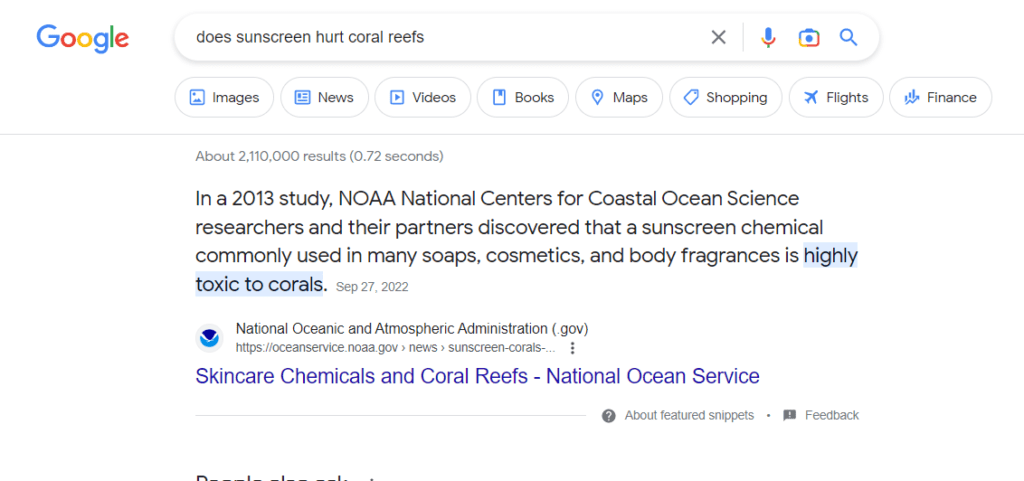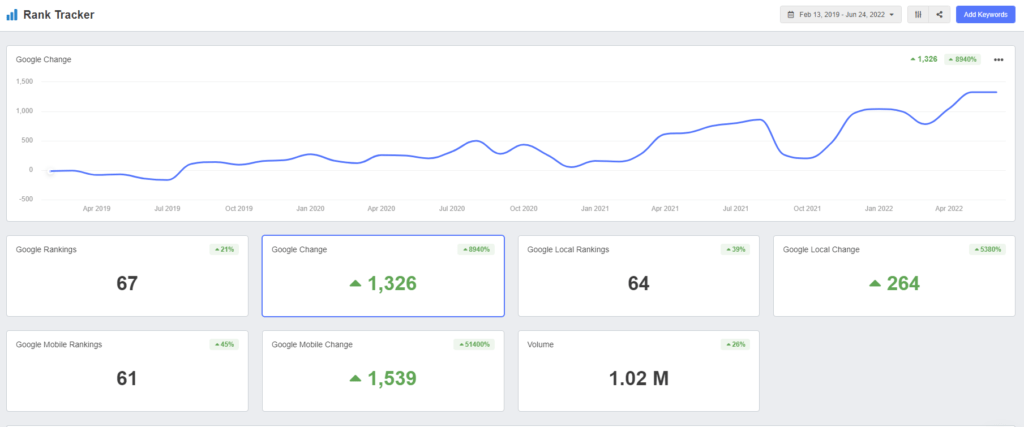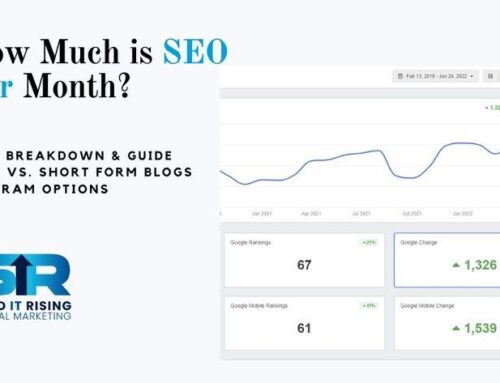
How to SEO Optimize a WordPress Website in 2023
In the ever-evolving world of digital marketing, search engine optimization (SEO) remains a crucial aspect of improving a website’s visibility and driving organic traffic. With WordPress being one of the most popular content management systems (CMS) for website creation, it’s essential to understand how to effectively optimize a WordPress website for SEO in 2023. In this blog post, we will explore the best practices for SEO optimization in WordPress, including the use of SEO Press and Yoast SEO Premium plugins, schema markup, alt tags, rich anchor texts, interlinking, H1 headers, integrating keywords, and backlinks.
Why Optimize Websites for SEO:
Optimizing a website for SEO is essential because it helps search engines understand the content and purpose of a website. When a website is well-optimized for SEO, it is more likely to rank higher in search engine results pages (SERPs) for relevant keywords, which can drive more organic traffic and increase the visibility of the website to potential users. Higher rankings also improve the credibility and trustworthiness of a website, leading to higher click-through rates and, ultimately, more conversions. SEO optimization is an ongoing process that requires continuous efforts to stay up-to-date with the latest best practices and algorithm changes, and WordPress provides several tools and plugins to make this process more manageable.
1. Best WordPress SEO Plugins
WordPress offers a plethora of plugins that can help optimize a website for SEO. Two of the best and most widely used plugins are SEO Press and Yoast SEO Premium.
SEO Press is a comprehensive SEO plugin that provides a wide range of features to optimize various aspects of a website, including meta titles and descriptions, image optimization, sitemaps, social media integration, and more. It also offers advanced features such as redirections, Google Analytics integration, and custom schemas. SEO Press allows users to easily optimize their website’s content for target keywords and provides recommendations for improving SEO.
Yoast SEO Premium is another popular SEO plugin that offers a range of features to optimize a WordPress website for SEO. It provides users with real-time content analysis, allowing them to optimize their content for their target keywords effectively. Yoast SEO Premium also offers features such as internal linking suggestions, duplicate content detection, and social media previews. Additionally, Yoast SEO Premium includes advanced features like schema markup and redirects management, making it a comprehensive SEO tool for WordPress websites.

2. Schema Markup
Schema markup is a way to provide search engines with additional information about the content on a website. It helps search engines understand the context of the content, which can improve the website’s visibility in SERPs. Schema markup can be used to provide information about products, services, events, reviews, and more. Adding schema markup to a WordPress website can be easily done using plugins like SEO Press or Yoast SEO Premium, which provide pre-defined schema markup options for various types of content.
3. Alt Tags
Alt tags, also known as alt text or alt attributes, are descriptions that can be added to images on a website. They serve as a textual alternative for images and are used by search engines to understand the content of an image. Alt tags should be descriptive and relevant to the image, and they should also include keywords related to the content of the webpage. By optimizing alt tags for images, WordPress website owners can improve the accessibility of their website and provide additional context for search engines, which can lead to higher rankings in SERPs.
4. Rich Anchor Texts
Anchor texts are the clickable text used in hyperlinks. Optimizing anchor texts with relevant and descriptive keywords can help search engines understand the content of the linked page and improve the website’s SEO. WordPress website owners should avoid using generic anchor texts such as “click here” or “readmore” and instead use rich anchor texts that provide context about the linked page. For example, instead of using “click here for more information about SEO,” a better anchor text would be “learn more about SEO optimization tips for WordPress websites.” This not only improves the SEO of the linked page but also enhances the overall user experience by providing meaningful and relevant anchor texts.
5. Interlinking
Interlinking is the practice of linking one page of a website to another page within the same website. It helps search engines understand the hierarchy and structure of a website and also provides users with a seamless navigation experience. WordPress websites can benefit from interlinking by strategically linking relevant pages and posts within the content. This can help distribute the link authority throughout the website and improve the SEO of individual pages. However, it’s important to avoid excessive interlinking or using irrelevant anchor texts, as they can be seen as spammy and have a negative impact on SEO.
6. H1 Headers
H1 headers, also known as heading tags, are used to structure the content on a webpage. The H1 header is typically used for the main heading of a page, while H2, H3, H4, and so on, are used for subheadings. Properly structuring the content with heading tags not only makes it more readable for users but also helps search engines understand the hierarchy and relevance of the content. WordPress websites should use H1 headers to clearly indicate the main topic of a page and incorporate relevant keywords to improve the SEO of the page, but there should never be more than one H1 header per page.
7. Long Form & Short Form Keywords
Keywords are the words or phrases that users enter into search engines when looking for information. Integrating relevant keywords into the content of a WordPress website is a fundamental aspect of SEO optimization. Website owners should research and identify the keywords that are relevant to their content and target audience and then incorporate them strategically into the content, including in the title tags, meta descriptions, headings, alt tags, and within the body of the content.
Short-form keywords are typically location or service-based keywords that are searched when someone is looking for a specific item or service.
Example of short-form keywords:
- Dentist near me
- SEO company near me
- WordPress website designer
- Best plastic surgeon in LA
- Garage door repair company
- Las Vegas kayaking company
- Deet-free sunscreen
Long-form keywords are often blog titles that are made up of questions or phrases with high search volume online. The goal of these keywords is to get blogs ranking in the highest organic position on Google, known as a rich-snippet. One blog in the rich-snippet position can driver hundreds or thousands of monthly users to your website.
Examples of long-form keywords (aka blogging titles):
- How to book cheap airline tickets
- Best Las Vegas neighborhood for families
- Where is the best beach in Portugal?
- Why is DEET bad for you?
- Where to go white water rafting in Colorado
- How to tell if your garage door springs need replaced
8. Backlinks
Backlinks, also known as inbound links or incoming links, are links from other websites that point to a website. Backlinks are considered as “votes of confidence” from other websites, indicating that the linked website is credible and valuable. Backlinks are an important factor in SEO, as they can improve the authority, credibility, and visibility of a website in search results. WordPress website owners should focus on building high-quality and relevant backlinks from reputable websites within their niche or industry. This can be achieved through various strategies such as guest blogging, outreach campaigns, and creating valuable content that naturally attracts backlinks.
9. User Experience
User experience (UX) is a critical aspect of website optimization for SEO in 2023. Google and other search engines increasingly prioritize websites that provide a positive experience for users. A website that offers a smooth and enjoyable experience to its visitors is more likely to receive higher engagement, longer dwell time, and lower bounce rates. To optimize user experience on a WordPress website, website owners should focus on creating a clean and easy-to-navigate website design, ensuring fast loading times, providing high-quality and relevant content, and optimizing for mobile devices. Responsive web design, intuitive navigation, clear calls-to-action, and engaging multimedia elements are some of the key elements that contribute to a positive user experience. By prioritizing user experience, website owners can improve their website’s SEO performance in 2023 by increasing user engagement, reducing bounce rates, and generating more organic traffic.
10. Google Search Console
Google Search Console, formerly known as Google Webmaster Tools, is a powerful tool provided by Google that allows website owners to monitor and optimize their website’s performance in Google search results. It provides valuable insights into how a website is performing in terms of search visibility, rankings, and indexing. WordPress website owners can utilize Google Search Console to identify and fix issues that may impact their website’s SEO performance. Some of the key features of Google Search Console include submitting sitemaps, checking for crawl errors, monitoring search traffic and impressions, analyzing keywords and rankings, and identifying mobile usability issues. Website owners can also use Google Search Console to submit URL changes, request Google to re-crawl and index specific pages, and receive important notifications and alerts regarding their website’s health and performance in search results. Regularly monitoring and optimizing a WordPress website using Google Search Console can help website owners identify and fix SEO issues, improve search visibility, and drive more organic traffic to their website.
Final Thoughts | SEO Optimize a WordPress Website
Optimizing a WordPress website for SEO is crucial for improving its visibility, driving organic traffic, and increasing conversions. With the right strategies and tools, such as SEO Press and Yoast SEO Premium plugins, schema markup, alt tags, rich anchor texts, interlinking, H1 headers, integrating keywords, and backlinks, WordPress website owners can effectively optimize their website for SEO in 2023. It’s important to continuously stay updated with the latest SEO best practices and algorithm changes to ensure the website remains competitive in search engine rankings. By implementing these SEO optimization techniques, WordPress website owners can enhance their website’s performance in search results and drive more targeted organic traffic to their website. Happy optimizing!









Leave A Comment